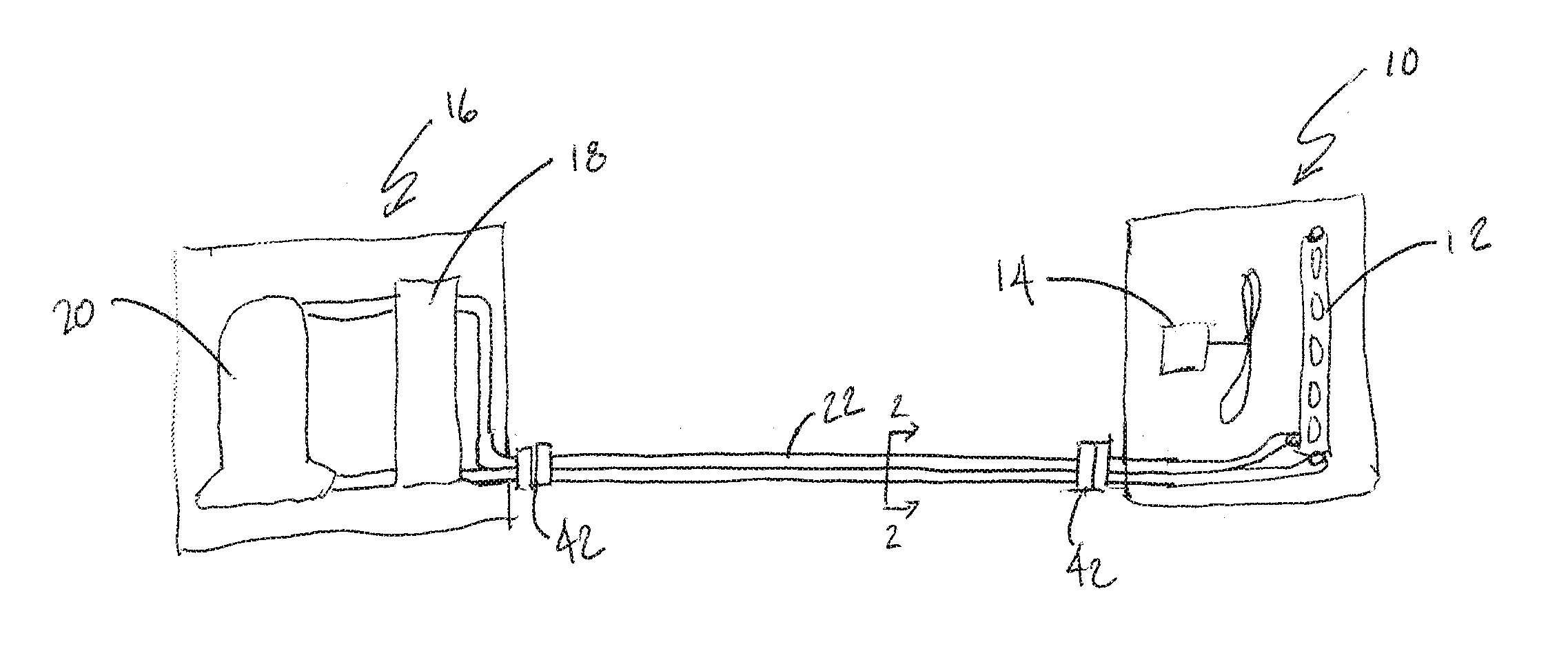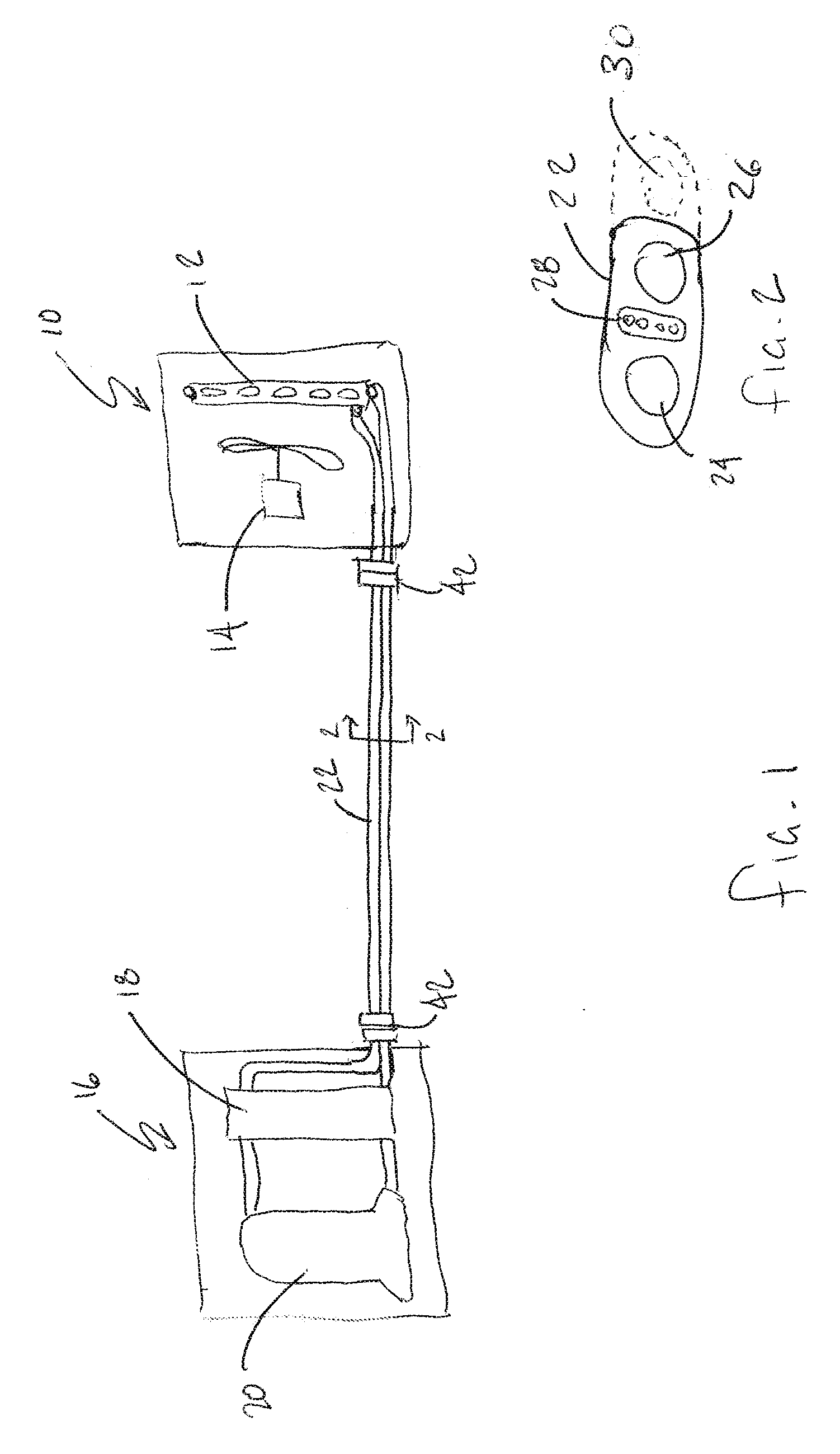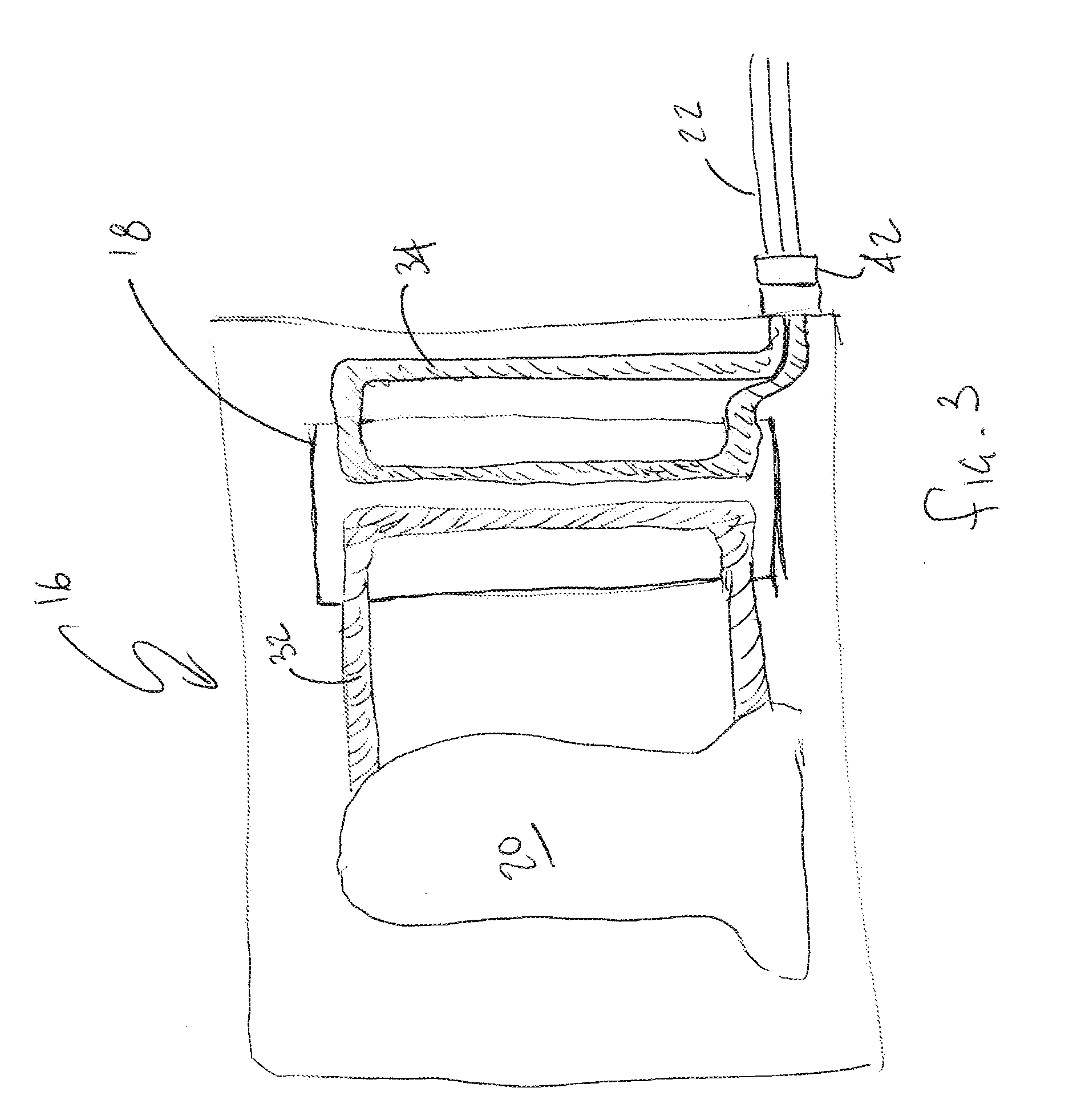Modular air conditioning system
- Summary
- Abstract
- Description
- Claims
- Application Information
AI Technical Summary
Benefits of technology
Problems solved by technology
Method used
Image
Examples
Embodiment Construction
[0021]Now referring to the drawings, the modular climate control system is shown and generally illustrated in the figures. As can be seen at FIG. 1, the modular climate control system in its most general form includes at least one user positionable interior unit 10 wherein the interior unit 10 includes a fluid to air heat exchanger 12 and a fan 14 to circulate air across the fluid to air heat exchanger 12, an exterior unit 16 including a fluid to fluid heat exchanger 18 and a system 20 for supplying a working fluid having a controlled temperature to a first side of the fluid to fluid heat exchanger 18 and a circulation hose 22 connected between a fluid side of the fluid to air heat exchanger 12 and a second side of the fluid to fluid heat exchanger 18, wherein the circulation hose 22 allows a circulating fluid to transport heat between the at least one interior unit 10 and the exterior unit 16. As will be discussed in bore detail below, the circulating fluid is a non-toxic, user ser...
PUM
 Login to View More
Login to View More Abstract
Description
Claims
Application Information
 Login to View More
Login to View More - Generate Ideas
- Intellectual Property
- Life Sciences
- Materials
- Tech Scout
- Unparalleled Data Quality
- Higher Quality Content
- 60% Fewer Hallucinations
Browse by: Latest US Patents, China's latest patents, Technical Efficacy Thesaurus, Application Domain, Technology Topic, Popular Technical Reports.
© 2025 PatSnap. All rights reserved.Legal|Privacy policy|Modern Slavery Act Transparency Statement|Sitemap|About US| Contact US: help@patsnap.com



